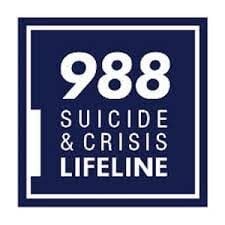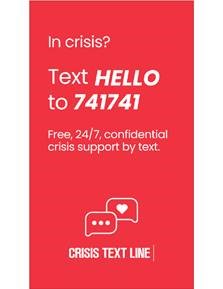In 1999, New York State enacted legislation that provides for court-ordered Assisted Outpatient Treatment (AOT) for eligible individuals with mental illness who, have a history of dangerousness associated with non-compliance with treatment; and who, in view of their treatment history, are unlikely to survive safely in the community without supervision. The following questions and answers will help explain this legislation, commonly referred to as "Kendra's Law." Additional information can be obtained at the website for the Office of Mental Health for the State of New York: "An Explanation of Kendra's Law".
What are the eligibility criteria for Assisted Outpatient Treatment?
An individual may be ordered to obtain AOT only if, after a hearing, a court finds by clear and convincing evidence that the subject of the petition meets all of the following criteria:
- is at least 18 years of age and suffers from a mental illness;
- is unlikely to survive in the community without supervision, based on clinical determination;
- has a history of non-compliance with treatment for mental illness which has led to either two hospitalizations for mental illness in the preceding three years, or resulted in at least one act of violence toward self or others, or threats of serious physical harm to self or others, within the preceding four years;
- is unlikely to accept the treatment recommended in a treatment plan;
- is in need of AOT to avoid a relapse or deterioration that would likely result in serious harm to self or others; and
- is likely to benefit from AOT.
Before a court may order AOT, it must be satisfied that it is the least restrictive alternative for the person. In some cases, if a less restrictive program exists that could effectively assist the person, a diversion plan will be developed that is a voluntary agreement of participation by the individual.
Whom should I contact if I think that someone needs assistance through AOT?
In Warren and Washington Counties, contact the Office of Community Services for Warren and Washington Counties at 518-792-7143. Staff will respond to your concerns, help you to determine if the person meets the criteria for AOT, and may refer you to other available services to assist the individual.
What is the process to obtain court-ordered Assisted Outpatient Treatment for someone?
The first step is the filing of a petition with the court for the county where the person resides. The petition is a formal statement of facts demonstrating that the person meets the criteria for AOT, which is accompanied by an affidavit of an examining physician.
The court is required to schedule a hearing, at which the court may hear testimony of the physician whose affidavit was filed and may also consider testimony of the petitioner and the subject of the petition. The subject of the petition has the right to legal representation throughout the proceeding. If the court determines that the criteria for AOT are met, and a written treatment plan has been filed with the court, an order for assisted outpatient treatment is issued.
How long does the person remain in the AOT program?
The initial court order is effective for up to six months from the date of the order. The order can be extended for successive periods of up to one year each. The same procedure used for the initial order is used to secure an order for extension.
What happens if the person does not comply with the terms of the court order?
If, in the clinical judgment of a physician, the individual has failed or refused to comply with the treatment ordered by the court and may be in need of involuntary admission to a hospital, he or she may recommend that the person be transported to a hospital and retained for up to 72 hours to determine if inpatient care and treatment are necessary. Any decision to retain the person beyond the initial 72 hours must be in accordance with the procedures for involuntary admission set forth in Mental Hygiene Law.
Who do I contact if I have additional questions about assisted outpatient treatment?
Contact the Office of Community Services for Warren and Washington Counties at 792-7143.


